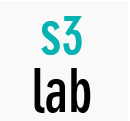In February, the Supreme Court will hear two cases—Twitter v. Taamneh and Gonzalez v. Google—that could alter how the Internet is regulated, with potentially vast consequences. Both cases concern Section 230 of the 1996 Communications Decency Act, which grants legal immunity to Internet platforms for content posted by users. The plaintiffs in each case argue that platforms have violated federal antiterrorism statutes by allowing content to remain online. (There is a carve-out in Section 230 for content that breaks federal law.) Meanwhile, the Justices are deciding whether to hear two more cases—concerning laws in Texas and in Florida—about whether Internet providers can censor political content that they deem offensive or dangerous. The laws emerged from claims that providers were suppressing conservative voices.
Continua aqui.

Deixe um comentário